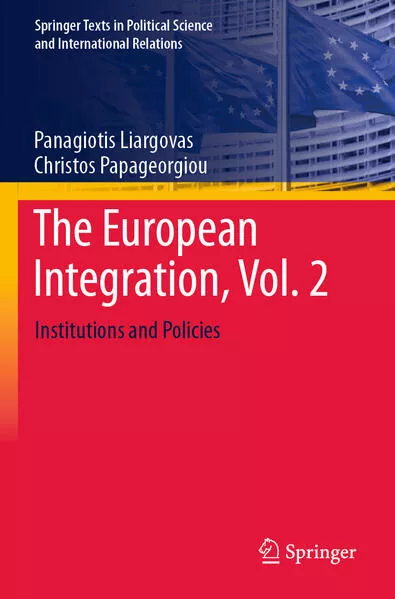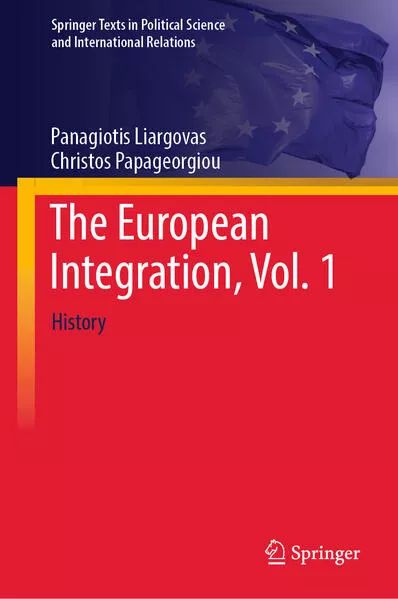
- Publikationen ca: 6
- Fragen & Antworten
Panagiotis Liargovas
Christos Papageorgiou is a member of the Laboratory of Data Science and Digital Transformation of the Department of Management Science and Technology of the University of Peloponnese, Greece. He holds a PhD in Professional Studies from Middlesex University, UK, and a PhD in European Economic Integration from the University of Peloponnese. Papageorgiou worked as a manager in private sector units and as a director in a municipal enterprise engaged in European regional programs funding.
The European Integration, Vol. 2
This two-volume textbook teaches about the uniqueness and the difficulty of the European unification project. It describes, as clearly as possible, what Robert Schuman declared in 1950, that "... Europe will not be made all at once…". Navigating the nexus of four academic fields - political science, institutional analysis, economics, and history - the book serves as a reference work for accurate, exhaustive, and well-researched information on the creation and functioning of the European Union.
The European Integration, Vol. 1
This two-volume textbook teaches about the uniqueness and the difficulty of the European unification project. It describes, as clearly as possible, what Robert Schuman declared in 1950, that "... Europe will not be made all at once…". Navigating the nexus of four academic fields - political science, institutional analysis, economics, and history - the book serves as a reference work for accurate, exhaustive, and well-researched information on the creation and functioning of the European Union.
The European Integration, Vol. 2
This two-volume textbook teaches about the uniqueness and the difficulty of the European unification project. It describes, as clearly as possible, what Robert Schuman declared in 1950, that "... Europe will not be made all at once…". Navigating the nexus of four academic fields - political science, institutional analysis, economics, and history - the book serves as a reference work for accurate, exhaustive, and well-researched information on the creation and functioning of the European Union.
The European Integration, Vol. 2
This two-volume textbook teaches about the uniqueness and the difficulty of the European unification project. It describes, as clearly as possible, what Robert Schuman declared in 1950, that "... Europe will not be made all at once…". Navigating the nexus of four academic fields - political science, institutional analysis, economics, and history - the book serves as a reference work for accurate, exhaustive, and well-researched information on the creation and functioning of the European Union.
The European Integration, Vol. 1
This two-volume textbook teaches about the uniqueness and the difficulty of the European unification project. It describes, as clearly as possible, what Robert Schuman declared in 1950, that "... Europe will not be made all at once…". Navigating the nexus of four academic fields - political science, institutional analysis, economics, and history - the book serves as a reference work for accurate, exhaustive, and well-researched information on the creation and functioning of the European Union.
The European Integration, Vol. 1
This two-volume textbook teaches about the uniqueness and the difficulty of the European unification project. It describes, as clearly as possible, what Robert Schuman declared in 1950, that "... Europe will not be made all at once…". Navigating the nexus of four academic fields - political science, institutional analysis, economics, and history - the book serves as a reference work for accurate, exhaustive, and well-researched information on the creation and functioning of the European Union.




